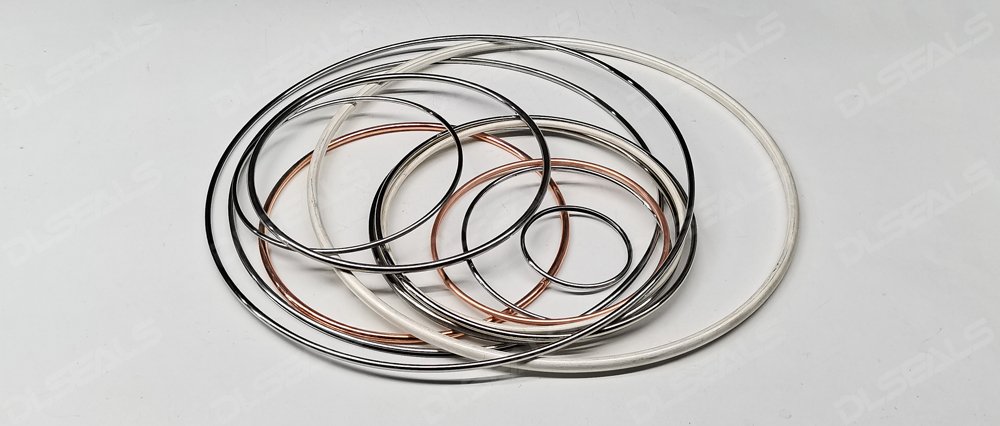News
A2024-03-28

In sealing systems, the selection of appropriate metal materials is critical to ensuring seal performance. Different working environments and application scenarios require specific metal materials to ensure that the sealing ring has superior sealing performance, durability and corrosion resistance. This article will delve into the key factors to consider when choosing the right metal material to help manufacturers and engineers make informed decisions.
1. Operating temperature range
Operating temperature is one of the first considerations when selecting metal materials. Different metal materials have different melting points and heat resistance properties, so when choosing, you need to ensure that the selected material can maintain stable performance in the working environment. High-temperature environments may require metals with high melting points, while low-temperature environments require metals with good low-temperature elasticity.
2. Work pressure requirements
Work stress is another determining factor. Metal sealing rings need to have pressure resistance in high-pressure environments. Different metal materials have different strength and deformation characteristics, so the appropriate metal material must be selected according to the pressure requirements in the specific application to ensure that the sealing ring will not fail under high pressure.
3. Media characteristics
The chemistry of the medium also has a key influence on the choice of metallic material. Some media may be corrosive and cause damage to metal materials. Therefore, in applications dealing with acidic, alkaline or other corrosive media, it is crucial to choose metal materials with good corrosion resistance.
4. Friction and wear
Some applications may involve high friction or frequent motion. Choosing metal materials with good wear resistance and low friction coefficient can help extend the life of the sealing ring and improve the efficiency of the system. For example, some metallic materials that contain self-lubricating properties perform well in high-friction environments.
5. Sealing performance requirements
For some applications that require a high degree of sealing, the surface quality of the selected metal material is very important. Surface treatment techniques, such as polishing and coating, can improve the flatness of metal surfaces, thereby improving sealing performance and reducing the risk of leakage.
6. Processability
The workability of the metal is also an important factor in making seals. Some metal materials are easier to machine into various shapes and sizes to accommodate different sealing needs. In addition, processability also affects the cost and efficiency of the production process.
7. Cost and availability
Ultimately, cost and availability are also important considerations. Different metal materials vary greatly in price, and some materials may be more readily available on the market. When making your choice, balance performance needs with cost constraints.
in conclusion
Selecting the correct metal material is a critical step in ensuring seal performance. Factors such as operating temperature, operating pressure, media characteristics, friction and wear, sealing performance requirements, processability, as well as cost and availability all need to be carefully considered. By fully understanding application requirements, manufacturers and engineers can ensure that the metal materials selected best meet the requirements of the sealing system, improving system reliability and performance.
[DLSEALS kindly Reminder] Sealing issues? Turn to DLSEALS! As a sealing component manufacturer, we specialize in customizing sealing components, providing a full range of services from design, research and development, production, testing, and more. If you have more information you'd like to know, feel free to contact us directly. DLSEALS's product experts are dedicated to serving you!